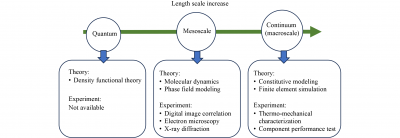A study by University of California, Riverside, scientists has found that two toxic chemicals can form when the main ingredient in most e-cigarette fluids is heated, and that these compounds can harm human lung cells.
The…

A study by University of California, Riverside, scientists has found that two toxic chemicals can form when the main ingredient in most e-cigarette fluids is heated, and that these compounds can harm human lung cells.
The…
CANBERRA, Oct. 24 (Xinhua) — The Australian government said on Friday that scientists have observed signs of the deadly H5 strain of avian influenza in elephant seals on a sub-Antarctic island.
The Department of Climate Change, Energy, the…

China’s overseas lending in renminbi is soaring, as Beijing steps up its efforts to expand the currency’s role in international finance and reduce the country’s exposure to the US dollar.
External renminbi loans, deposits and bond investments by Chinese banks quadrupled to more than Rmb3.4tn ($480bn) over the past five years, as policymakers more aggressively pursue their long-term goal of reducing the centrality of the dollar in global financial flows.
As part of this campaign, China is also opening more channels for foreign investors to buy renminbi-denominated bonds. But officials have focused their efforts on boosting the renminbi’s role in trade, partly as a defence against policies enacted in the US and elsewhere that weaponise the dollar — such as this week’s EU sanctions targeting Chinese banks accused of helping Russia to secure weapons parts overseas.
“From China’s perspective, [settlement in renminbi] is important because it shows that no matter what happens, it can still trade,” said Adam Wolfe, emerging markets economist at Absolute Strategy Research in London.
Recent data from China’s State Administration of Foreign Exchange shows the external fixed-income assets of Chinese banks more than doubling over the past decade to more than $1.5tn, with the share denominated in renminbi expanding rapidly to almost $484bn at the end of June. This includes $360bn of renminbi loans and deposits, up from $110bn in 2020.
Similarly, the Bank for International Settlements estimates that overseas bank lending in renminbi to borrowers in developing countries rose by $373bn in the four years to the end of March.
“The year 2022 marked a turning point away from dollar- and euro-denominated credit and towards renminbi-denominated credit” to such borrowers, the BIS said.
With interest rates in China relatively low, sovereign borrowers including Kenya, Angola and Ethiopia have converted old dollar debts into renminbi this year. Indonesia and Slovenia recently announced plans to issue renminbi bonds, and last month Kazakhstan’s development bank sold a Rmb2bn offshore bond at a yield of just 3.3 per cent.
A big part of the expansion in renminbi lending has been in trade finance. Data from cross-border payments system provider Swift shows that the renminbi’s share of global trade finance quadrupled over the past three years to 7.6 per cent in September, making it the second most-used currency in trade finance after the US dollar.

China has further bolstered the use of the renminbi overseas through a network of offshore clearing banks, both Chinese and foreign, and through swap lines with trading partners around the world.
It comes as Beijing has pushed the use of its own cross-border payments system, Cips, where the value of transactions has risen from a negligible amount a decade ago to more than Rmb40tn in every quarter since the start of last year.
Cips transactions have expanded even as the renminbi’s share of global payments on the Swift system has fallen. Bert Hoffman, a professor at the National University of Singapore’s East Asian Institute, said this most likely indicated a migration of payments to the Chinese system — furthering Beijing’s desire to move away from a dollar-based global monetary system to a multi-polar one.
Chinese officials believe that “a dollar-based system is inherently unstable and has disadvantages that a multicurrency system would not have,” Hoffman said.
Chinese customs data suggests such plans are advancing. It shows the value of Chinese trade transacted in renminbi soaring to more than Rmb1tn a month over the past decade, with about 30 per cent of China’s trade and more than half of its cross-border transactions now settled in renminbi.
China’s capital controls, however, have long hindered the renminbi’s international appeal — according to the IMF, it made up just 2.1 per cent of official reserves at the start of this year. One problem is a lack of readily available renminbi assets.
Policymakers are moving to address this. Hong Kong authorities have embarked on a plan to make the city a hub for fixed income and currency trading. Simultaneously, Beijing has opened its domestic interbank repo market to foreign investors, allowing them to use renminbi fixed-income assets as collateral for renminbi loans.
The repo initiative “deals with some of the pain points for foreign investors”, said Karen Lam, head of Hong Kong securitisation and derivatives at law firm Simmons & Simmons.
“It only makes sense for investors to allocate more into these assets if they are able to use them for more than just holding and generating an income.”
Last month, Hong Kong authorities announced a “road map” to bolster the city’s markets by supporting issuance and liquidity, particularly in renminbi.
“It’s as significant as what Hong Kong did with the stock connect programmes,” said Paul Smith, head of markets for Japan, north Asia and Australia at Citi, referring to the channel connecting the Hong Kong stock exchange to mainland bourses. “Ultimately, it will accelerate the renminbi as a funding currency.”
Over the summer, Beijing broadened the scope of its bond connect programme to allow more mainland Chinese investors to invest in Hong Kong’s fixed income market, which Smith said connects offshore issuers of renminbi debt with a “deep pool of renminbi liquidity”.
Experts agree that China has little interest in the renminbi taking the place of the US dollar in the global financial system. But by boosting the renminbi’s involvement in international trade and investment, “China may get the best of both worlds,” said Smith at Citi.
Beijing’s policies are bringing that target into view, analysts say.
“The policy is moving very gradually, but all of the elements that would make a much more rapid internationalisation work — they’re falling into place,” said Hoffman.
Additional reporting by Joseph Cotterill in London

Frontline healthcare workers struggling with depression after the COVID-19 pandemic experienced significant relief from a treatment combining psilocybin group therapy with mindfulness training, according to a new study from Huntsman…

Men whose prostate cancer returns after surgery or radiation therapy may now benefit from a new drug combination shown in clinical trials to cut the risk of death by more than 40%.
The combination therapy, which adds a drug called…

Oct. 23 (UPI) — SpaceX launched a Spanish communications satellite atop a Falcon 9 rocket Thursday night from Cape Canaveral Space Force Station in Florida in a rare expendable mission.
The rocket deployed the SpainSat NG 2 satellite about 35…

Kim Kardashian has revealed that she has been diagnosed with a brain aneurysm.
The 45-year-old appears to suggest her small…

North have been bolstered by the return of four Western
Force players including Wallaroos superstar Trilleen Pomare for Game 2 of the
North vs South Women’s Series at Perth Bayswater on Saturday 11am.
Hannah Palelei, Anneka Stephens and Brooklyn…

In the fields of civil engineering, aerospace, biomedical engineering, and more, shape memory alloys (SMAs) have garnered widespread attention owing to their distinctive properties. Among them, nickel-titanium (NiTi)…

(Bloomberg) — Technology shares drove a broad rise in Asia’s stock markets on Friday as a plan for Donald Trump and Xi Jinping to meet eased nerves around a trade war.
An MSCI gauge of Asian shares was up around 0.5%, resuming a blistering rally this year that has pushed the index to all-time highs. Tech stocks were among the big drivers, with an industry gauge in Hong Kong jumping around 1.4% in early trading. Shares in Intel Corp helped lift the mood overnight, climbing in post-market trading after an upbeat revenue forecast.
Sentiment got a boost after the White House said President Trump will meet his Chinese counterpart Xi Jinping, a chance for cooler heads to prevail after a recent flare-up in trade tensions. The two leaders will talk next Thursday on the sidelines of the Asia-Pacific Economic Cooperation summit, their first face-to-face meeting since Trump returned to power.
“The confirmation of a Xi–Trump meeting gave markets a clear reason for a relief rally today,” said Hebe Chen, an analyst at Vantage Markets in Melbourne. “Not from hopes of warmer U.S.–China relations ahead, but from the perception that any progress is better than stalemate, and that a new deal before the truce deadline now appears more attainable.”
Tech stocks in both countries have rallied, in part due to signs of state support. US quantum-computing shares got a lift from reports that the Trump administration was mulling financial support for some firms, a move to counter China, while Beijing’s pledge to boost technological self-sufficiency fueled demand for tech stocks in early trading.
Investors are now turning their attention to the delayed inflation report from the US, which will be released on Friday. The cross-asset moves overnight suggest investors are optimistic the inflation reading won’t be a major drag to global markets that have zoomed higher over the past month. Oil prices fell ahead of US inflation data.
“Valuations continue to be the best argument for bears, but the relentless buy-the-dip approach of investors has even the most pessimistic investors questioning their outlook,” said Mark Hackett at Nationwide.
Policy Turn
Treasuries were steady on Friday. They had snapped a three-day rally during overnight trading as yields rose across the curve, with the 10-year climbing five basis points to 4%. The dollar was little changed.
West Texas Intermediate edged lower after jumping 5.6% to settle near $62 a barrel on Thursday, the biggest jump since the start of the Israel-Iran conflict on June 13. The latest US oil sanctions signaled a major policy turn from the Group-of-Seven price cap strategy that sought to limit Russia’s earnings without disrupting supply or driving up global prices.
“As with the trade war, the fallout from the oil sanctions is murky at best, although we expect that from the perspective of the market at least, the kneejerk spike in crude will represent the bulk of the attention devoted to this matter, as it were,” said Ian Lyngen, Vail Hartman and Delaney Choi at BMO Capital Markets.
Investors will likely look past any evidence of stubborn inflation in Friday’s consumer price index report, as money markets brace for a Federal Reserve rate cut next week.
Prospects for Fed easing, durable earnings growth and AI investment spending support the view that the equity bull market has further room to run, according to Ulrike Hoffmann-Burchardi at UBS Global Wealth Management. But she also sounds a note of caution.
“Any setbacks in US-China relations or potential concerns about the durability of the AI-driven rally could trigger bouts of volatility,” she said.
How should regulators react to the blurring line between investing and gambling? Let us know in the latest Markets Pulse survey.
Some of the main moves in markets:
Stocks
S&P 500 futures rose 0.2% as of 11:17 a.m. Tokyo time Nikkei 225 futures (OSE) rose 1.5% Japan’s Topix rose 0.6% to a record high Australia’s S&P/ASX 200 fell 0.2% to the lowest since Oct. 17, 2025 Hong Kong’s Hang Seng rose 0.7% to the highest since Oct. 10, 2025 The Shanghai Composite rose 0.2% to the highest since Oct. 9, 2025 Euro Stoxx 50 futures rose 0.2% Currencies
The Bloomberg Dollar Spot Index was little changed The euro was little changed at $1.1611 The Japanese yen weakened 0.2%,falling for the sixth straight day, the longest losing streak since Oct. 9, 2025 The offshore yuan was little changed at 7.1276 per dollar Cryptocurrencies
Bitcoin rose 0.9% to $110,597.69 Ether rose 1.4% to $3,884.39 Bonds
The yield on 10-year Treasuries was little changed at 4.00% Australia’s 10-year yield advanced two basis points to 4.15% Commodities
West Texas Intermediate crude fell 0.6% to $61.43 a barrel Spot gold fell 0.3% to $4,112.90 an ounce This story was produced with the assistance of Bloomberg Automation.
–With assistance from Winnie Hsu.
©2025 Bloomberg L.P.